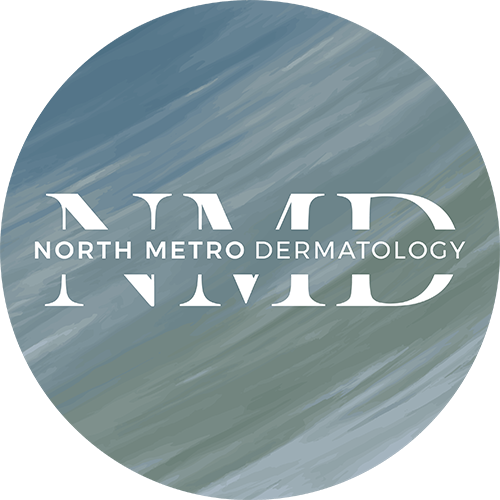Acne is one of the most common skin problems, affecting about 90% of all people at some time during their life. It develops when pores beneath the skin surface become clogged with oil and dead skin cells. Bacteria can then grow in these glands which, in turn, causes inflammation and pimples. Acne is most common on the face, neck, back, and chest, but it can occur on most areas of the body.
While acne commonly occurs in adolescence and young adulthood, it may be troublesome well into the 30s, 40s, and beyond. It is important to treat acne early to prevent scarring and emotional distress.
Acne is caused by a combination of genetic and hormonal factors. Stress, diet, and external factors (topical products, exercise, friction) can aggravate acne.
There are many different treatments available for acne. Factors that go into deciding appropriate treatment include severity and type of acne, age and gender of the patient, and tolerance, efficacy, and duration of past treatments.
TOPICALS: The first-line treatment for mild to moderate acne is often a topical regimen. This can be a combination of medicated washes, creams, gels, and lotions. Different topical medications target various aspects of acne and may be used in combination with each other. Your provider may recommend a combination of prescription topical medication as well as over-the-counter products. To view the treatment options we carry, visit our store.
ORAL TREATMENTS: For moderate to severe cystic acne, there are a variety of oral treatments that may be recommended. These prescribed medications have an increased risk of side effects compared to topical treatments and require close monitoring. Oral antibiotics decrease inflammation (a major component of acne). Oral contraceptives or spironolactone may benefit female patients who experience hormonally-driven acne.
ISOTRETINOIN: For severe acne that persists despite multiple treatments, or for cystic acne that has a high risk of scarring, isotretinoin may be recommended as a treatment option. Isotretinoin is an oral medication that is regulated by a computer-based risk management program called IPLEDGE. The medication’s use and side effects are closely monitored by your provider. Despite the possible side effects, when taken properly and under the care of a dermatology provider, isotretinoin can provide significant improvement.
OTHER TREATMENTS
INTRALESIONAL INJECTIONS: For infrequent, inflamed, painful cystic lesions, your provider may recommend an intralesional Kenalog injection. These injections are done in-office on an “as needed” basis. During the procedure, your provider will inject a small amount of corticosteroid directly into the affected lesion. Improvement can be seen within 24-48 hours.
ESTHETICIAN SERVICES: Our esthetician offers chemical peels, extractions, and other treatments to reduce acne. These treatments can help get acne under control so that topical and/or oral therapies can provide better management to maintain clear skin. These treatments are not covered by insurance.
Typically, once acne is well-controlled, many of the marks or discoloration can fade over time. However, with persistent acne scarring or blemishes, treatment options including Skin Pen®, laser treatments, and/or chemical peels can help. These treatments are not covered by insurance.
